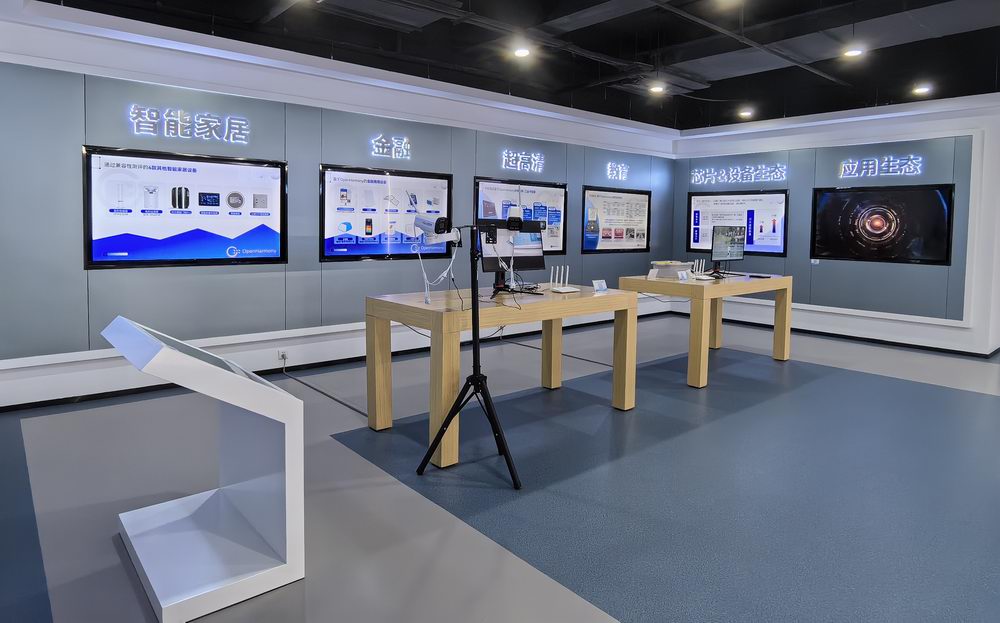Exploring China's Leading Tech Hubs in 2024

China's tech landscape continues to evolve, with several cities emerging as leading Tech Hub China in 2024. Shenzhen, often dubbed the "Silicon Valley of China," exemplifies this growth. Its high-tech industries contribute over 40% to its GDP, showcasing its global significance. Meanwhile, Zhongkai High Tech Zone plays a pivotal role in supporting enterprises. It offers a robust platform for electronic information industries, fostering innovation and growth. This synergy between established and emerging tech hubs underscores China's position as a global leader in technology.
Shenzhen: The Silicon Valley of China
Government Policies and Support
Shenzhen's government actively fosters a thriving tech ecosystem. They implement policies that promote high-tech industries and indigenous innovation. Investment in research and development has soared, with high-tech products accounting for more than 50% of exports. The local government also provides generous subsidies for integrated circuit (IC) design and manufacturing companies. These subsidies support IC tape-out projects, encouraging further technological advancements. Shenzhen's commitment to upgrading industries remains steadfast, even amidst external pressures such as technological decoupling and protectionist measures from the US.
Innovation Culture and Talent Pool
Shenzhen boasts a vibrant innovation culture, attracting a diverse talent pool. The city's focus on developing industrial clusters, particularly in the AI and robotics sectors, showcases its strong innovation capabilities. Enterprises in Shenzhen bear the burden of innovation, driving the city’s technological advancements. This environment nurtures creativity and collaboration, making Shenzhen a magnet for tech enthusiasts and professionals. The city's educational institutions and research centers contribute significantly to this talent pool, ensuring a steady supply of skilled individuals ready to tackle the challenges of the tech industry.
Presence of Tech Giants
Shenzhen hosts numerous tech giants, solidifying its status as a leading Tech Hub China. Companies like Huawei, Tencent, and DJI have their headquarters in the city, contributing to its reputation as a global technology powerhouse. These corporations not only drive economic growth but also foster an environment of innovation and competition. Their presence attracts startups and smaller tech firms, creating a dynamic ecosystem where ideas flourish. The synergy between established giants and emerging enterprises propels Shenzhen to the forefront of technological innovation, reinforcing its position as the "Silicon Valley of China."
Focus on Emerging Technologies
Shenzhen stands at the forefront of emerging technologies, driving innovation in various fields. The city prioritizes the development of strategic industries, including artificial intelligence (AI), robotics, and integrated circuits (IC). This focus aligns with Shenzhen's broader economic strategy to counteract external pressures, such as technological decoupling and protectionist measures from the United States. By investing heavily in research and development, Shenzhen ensures that high-tech products dominate its export market.
The local government plays a crucial role in fostering this technological advancement. Generous subsidies support IC design and manufacturing companies, encouraging them to undertake ambitious projects. These subsidies facilitate IC tape-out projects, which are essential for advancing semiconductor technology. Additionally, Shenzhen's policy system promotes AI applications across all fields and times, highlighting the city's strong innovation capabilities in the robot industry.
Shenzhen's commitment to emerging technologies extends beyond policy support. The city actively develops industrial clusters, creating a conducive environment for tech enterprises to thrive. These clusters attract a diverse talent pool, further enhancing Shenzhen's reputation as a leading Tech Hub China. The synergy between established tech giants and innovative startups fosters a dynamic ecosystem where new ideas and technologies flourish.
Moreover, the supportive role of Zhongkai High Tech Zone cannot be overlooked. As a National Foreign Trade Transformation and Upgrading Base, it provides a robust platform for enterprises in the electronic information industry. The cloud platform offered by Zhongkai High Tech Zone facilitates seamless integration and collaboration among tech companies, enabling them to stay competitive in the rapidly evolving tech landscape.
Shanghai: The Financial and Tech Powerhouse
Shanghai stands as a beacon of financial and technological prowess in China. Its strategic location and robust infrastructure make it a prime destination for tech enterprises seeking to tap into vast markets.
Access to Markets
Shanghai offers unparalleled access to both domestic and international markets. The city's well-developed transportation networks, including ports and airports, facilitate seamless trade and commerce. Companies in Shanghai benefit from this connectivity, allowing them to distribute products efficiently and reach a broad customer base. The city's financial institutions provide essential support, offering services that enable businesses to thrive in a competitive environment.
Innovation and Research
Innovation thrives in Shanghai, driven by a strong emphasis on research and development. The city hosts numerous research institutions and universities that contribute to technological advancements. These institutions collaborate with industries, fostering an environment where ideas transform into tangible innovations. Shanghai's commitment to research ensures a steady flow of new technologies, reinforcing its status as a leading Tech Hub China. The city's focus on innovation attracts top talent, creating a vibrant ecosystem where creativity flourishes.
Government Initiatives
The Shanghai government plays a pivotal role in nurturing the tech industry. It implements policies that encourage investment in high-tech sectors, providing incentives for companies to establish operations in the city. These initiatives include tax breaks, grants, and subsidies that reduce operational costs for tech enterprises. The government's proactive approach ensures a supportive environment for innovation, attracting both domestic and international companies. Shanghai's policy framework aligns with its vision to remain at the forefront of technological development, solidifying its position as a financial and tech powerhouse.
Beijing: The Heart of China's Tech Innovation
Beijing stands as a central figure in China's technological landscape. The city thrives on its rich resources in education, government support, and a dynamic tech ecosystem. These elements collectively position Beijing as a leading Tech Hub China.
Talent and Education
Beijing boasts a robust educational infrastructure. Prestigious institutions like Tsinghua University and Peking University produce a steady stream of skilled graduates. These universities focus on cutting-edge research and development, contributing significantly to the city's talent pool. The presence of these institutions attracts top-tier talent from across the globe, fostering an environment ripe for innovation. Students and researchers collaborate with tech companies, driving advancements in various fields. This synergy between academia and industry ensures that Beijing remains at the forefront of technological progress.
Government and Policy Influence
The Chinese government plays a pivotal role in shaping Beijing's tech landscape. It implements policies that encourage innovation and entrepreneurship. These policies provide financial incentives, such as grants and tax breaks, to tech startups and established companies alike. The government's strategic initiatives aim to create a conducive environment for technological growth. By prioritizing sectors like artificial intelligence and biotechnology, Beijing aligns itself with national goals for technological advancement. This proactive approach ensures that the city remains a key player in the global tech arena.
Tech Giants and Start-ups
Beijing hosts a vibrant ecosystem of tech giants and startups. Companies like Baidu, Xiaomi, and ByteDance have their headquarters in the city. These corporations drive economic growth and foster a culture of innovation. Their presence attracts numerous startups, creating a dynamic and competitive environment. Startups benefit from the resources and expertise of established companies, leading to collaborative ventures and technological breakthroughs. This ecosystem nurtures creativity and entrepreneurship, reinforcing Beijing's status as a leading Tech Hub China.
Moreover, the supportive role of Zhongkai High Tech Zone cannot be overlooked. As a National Foreign Trade Transformation and Upgrading Base, it provides essential cloud platform support for enterprises. This platform facilitates seamless integration and collaboration among tech companies, enabling them to stay competitive in the rapidly evolving tech landscape. The synergy between Beijing's tech giants and the resources offered by Zhongkai High Tech Zone ensures a thriving environment for innovation and growth.
Zhongkai High Tech Zone: A Supportive Platform for Enterprises
Role in Electronic Information Industry
Zhongkai High Tech Zone stands as a pivotal player in China's electronic information industry. This zone provides a robust platform for enterprises, enabling them to thrive in a competitive market. Companies benefit from the zone's strategic location and advanced infrastructure, which facilitate seamless operations. The zone's focus on electronic information aligns with China's broader goals of technological advancement. By supporting high-tech industries, Zhongkai High Tech Zone contributes significantly to the nation's economic growth.
Cloud Platform Support
The cloud platform offered by Zhongkai High Tech Zone enhances the capabilities of enterprises. This platform provides essential tools and resources, allowing companies to innovate and expand their operations. Businesses leverage cloud technology to improve efficiency and reduce costs. The platform's user-friendly interface ensures that enterprises can easily integrate it into their existing systems. By offering comprehensive support, Zhongkai High Tech Zone empowers companies to stay competitive in the rapidly evolving tech landscape.
Expert Testimony:
"Although China’s scientific and technological undertakings have made significant progress, its original innovation capabilities are still relatively weak," said Xi Jinping, emphasizing the need for enhanced technological innovation.
Zhongkai High Tech Zone addresses this challenge by fostering an environment conducive to innovation. The zone's cloud platform plays a crucial role in this endeavor, providing enterprises with the tools they need to succeed. As a result, Zhongkai High Tech Zone solidifies its position as a leading Tech Hub China, supporting the nation's technological aspirations.
Emerging Tech Hubs in China
China's tech landscape is not limited to its well-known giants. Emerging cities are making significant strides, contributing to the country's reputation as a global technology leader.
Hangzhou: A Leader in High-Tech Transformation
Hangzhou stands out as a beacon of high-tech transformation. The city hosts major tech companies like Alibaba and NetEase, which drive innovation and economic growth. Hangzhou's focus on digital economy initiatives has positioned it as a leader in e-commerce and fintech. The city's commitment to fostering a robust tech ecosystem attracts talent and investment, further solidifying its status as a key player in China's technological advancement.
Hefei: Rising Star in Innovation
Hefei emerges as a rising star in China's tech scene. The city invests heavily in research and development, particularly in the fields of quantum computing and artificial intelligence. Hefei's strategic partnerships with universities and research institutions fuel its innovation engine. This collaborative approach results in groundbreaking technologies that capture global attention. Hefei's dedication to nurturing a vibrant tech community ensures its continued ascent in the ranks of China's leading tech hubs.
Other Emerging Cities: Wuhan, Guangzhou, Tianjin, Chengdu
Several other cities are making their mark on China's tech landscape:
Wuhan: Known for its strong educational institutions, Wuhan fosters a culture of innovation. The city's focus on biotechnology and information technology attracts startups and established companies alike.
Guangzhou: As a major port city, Guangzhou leverages its strategic location to boost its tech industry. The city's emphasis on smart manufacturing and digital infrastructure supports its growth as a tech hub.
Tianjin: With a focus on aerospace and robotics, Tianjin positions itself as a center for advanced manufacturing. The city's investment in cutting-edge technologies drives its economic development.
Chengdu: Known for its vibrant startup scene, Chengdu attracts entrepreneurs and investors. The city's supportive policies and thriving tech community make it an attractive destination for innovation.
These emerging cities contribute to China's dynamic tech ecosystem, each bringing unique strengths and opportunities. Their growth underscores the country's commitment to expanding its technological capabilities and maintaining its position as a global leader in innovation.
China's tech hubs, including Shenzhen, Shanghai, and Beijing, have established themselves as leaders through strategic government policies, a rich talent pool, and the presence of tech giants. These cities drive innovation and economic growth, positioning China as a global technology powerhouse. Emerging hubs like Hangzhou and Hefei further enhance this landscape with their focus on high-tech transformation and innovation. The Zhongkai High Tech Zone plays a crucial role in supporting enterprises, offering a robust platform for electronic information industries. This synergy ensures that China's tech industry continues to thrive and expand its global impact.
See Also
Zhongkai High-tech Zone: A Center for Innovation
2024: Discovering the Expansion of Zhongkai High-tech Zone
Uncovering the Tech Titans of Huizhou Zhongkai
Zhongkai High tech Zone National foreign trade transformation and Upgradi Base(Electronic Information)Cloud Platform.
Address: Zhongkai High-tech Zone,Huizhou City ,Guangdong,China
E-mail: huizhoueii@163.com 13510001271@163.com
Tel: +86-0752-3279220 Mobile: +86-13510001271


